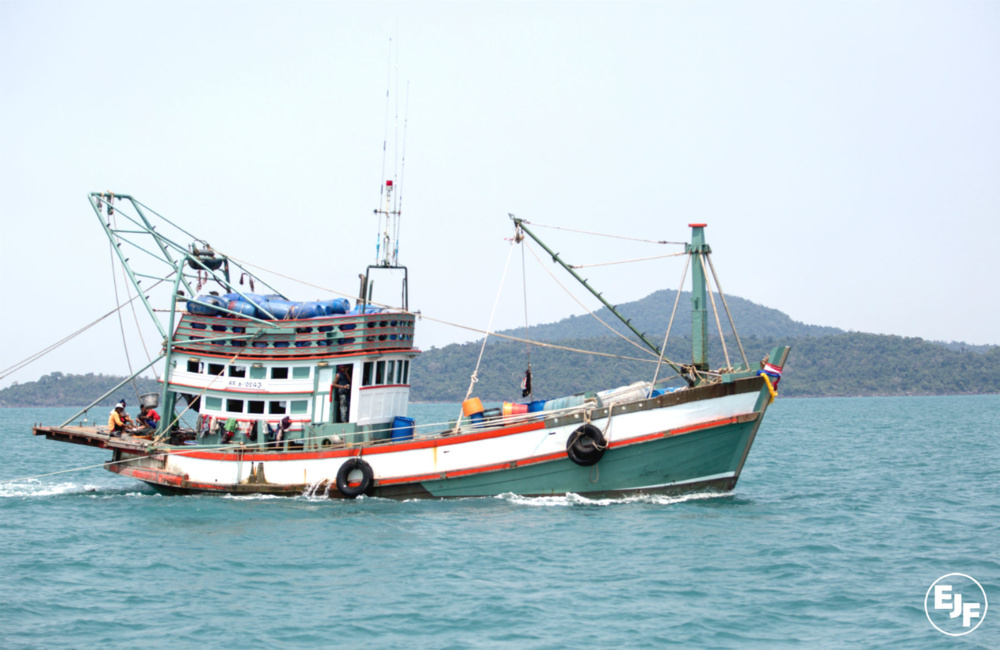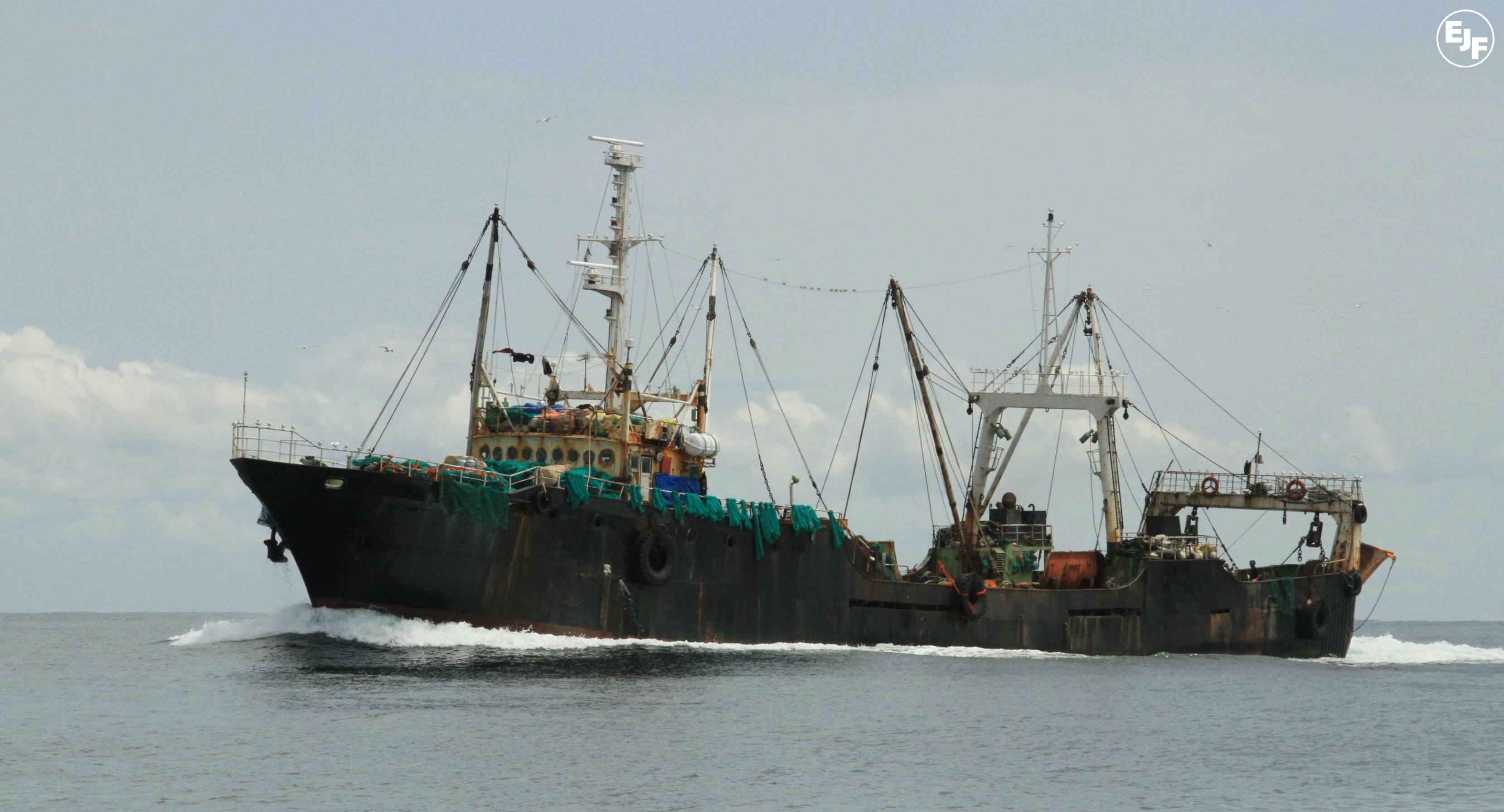
Introducing compulsory identification numbers could go some way to fight illegal fishing - and legal experts show it is possible
Legal experts have concluded that introducing compulsory identifying numbers for non-EU fishing vessels exporting seafood to the EU is compatible with WTO rules. In light of this, environmental organisations are calling for the European Commission to reconsider their approach.
Currently, EU fishing vessels above a certain size are required to carry a unique identifying number as given by the International Maritime Organization (IMO). However, non-EU vessels are currently only subject to this requirement if they fish in EU waters.
EJF, Oceana, The Pew Charitable Trusts and WWF have been advocating for a number of years to make unique vessel identifiers (UVI), specifically IMO numbers, mandatory for non-EU fishing vessels catching seafood destined for the EU market.
NGOs are not alone in this view. The EU catching and processing industry is demanding this measure as well to create a fair system that enables a more efficient fight against illegal, unregulated and unreported (IUU) fishing.
There is agreement amongst various sectors of the fishing industry that compulsory IMO numbers would have two main benefits:
- Contribute to the fight against IUU fishing by enhancing the ability to track vessels and verify their compliance with fisheries regulations.
- Drive the observance of IMO number requirements within Regional Fisheries Management Organisations (RFMO) worldwide.
For instance, in May 2017, the EU’s Long Distance Fleet Advisory Council (LDAC) unanimously approved an Advice to the European Commission, recommending that an IMO number requirement be introduced for non-EU vessels exporting seafood to the EU market. Importantly, the Advice highlighted the need for a level playing field for all vessels catching seafood for the EU market, which is a key objective of the reformed Common Fisheries Policy.
The European Commission, in its reply to the LDAC Advice, expressed concern regarding the compatibility of such a measure with World Trade Organisation rules.
The NGOs sought the opinion of two highly regarded academics in order to establish whether incompatibility with WTO rules is a real barrier. Dr. Gracia Marín-Durán and Professor Joanne Scott, who specialise in WTO and EU law, concluded that the Commission’s concern is unwarranted.
The opinion argues that it is unlikely that the proposed measure would violate the non-discrimination provisions of two key WTO agreements –the General Agreement on Tariffs and Trade (GATT) and the Agreement on Technical Barriers to Trade (TBT Agreement). On the contrary, the measure would in fact be helpful in fulfilling the very purpose of the TBT Agreement, by building upon current international standards, namely the IMO Ship Identification Number Scheme.
What’s more, even if the measure were to result in discrimination between trading partners, it could be justified due to its role in conserving fish stocks through combatting IUU fishing. This is especially true given that the IMO number is widely accepted as the best available UVI for the global fishing fleet. For example, the FAO and Tuna Regional Fisheries Management Organisations support the use of IMO numbers as the principal identifier for fishing vessels.
In light of these findings, EJF, Oceana, the Pew Charitable Trusts and WWF urge the European Commission to explore all possible avenues to make IMO numbers mandatory on the catch certificate for imports of fisheries products into the EU. This will also serve to reinforce the EU’s leadership in tackling IUU fishing and in global fisheries governance.
EJF is working in a coalition of non-governmental organisations to secure the harmonised and effective implementation of the European Union’s Regulation to prevent, deter and eliminate illegal, unreported and unregulated (IUU) fishing.
SIGN UP FOR OUR EMAILS AND STAY UP TO DATE WITH EJF
